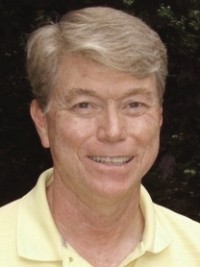 In December, JKP author John Merges shared some thoughts about his passion: helping young people on the autism spectrum enjoy social interactions – an important skill they’ll need later in life and in work.
In December, JKP author John Merges shared some thoughts about his passion: helping young people on the autism spectrum enjoy social interactions – an important skill they’ll need later in life and in work.
Here, he answers some more practical questions about how social enjoyment groups work, and about his new book, Social Enjoyment Groups for Children, Teens and Young Adults with Autism Spectrum Disorders.
What are Social Enjoyment groups, and who are they for?
Social Enjoyment groups are weekly experiences – in school and/or in he community — that provide individuals with ASD the opportunity to practice their skills at enjoying common social experiences. The groups provide positive goals, enjoyable experiences, coaching from professionals, and enough routine to make everything feel safe. School groups are for young people from age five though eighteen. Community groups are for twelve year olds through young adults.
What are the goals of Social Enjoyment groups?
The goals of Social Enjoyment groups are simple:
- Provide a safe, structure environment for the individuals.
- Provide exciting games and activities.
- Promote social interaction that simulates the social interaction that occurs at work.
- Work with in partnerships and teams.
- Tolerate/enjoy everyone in the room.
- Learn to compromise and cooperate.
- Learn new games and activities (simulating learning new job responsibilities).
- Learn to evaluate – focus on the positive.
- Learn to switch tasks without finishing a task.
- Make friends.
- Focus on positive goals – give positive feedback.
- Provide extended time for participants to practice and then incorporate these skills.
What do Social Enjoyment groups look like in practice?
At their best, social groups look like a group of young people having fun — with the adults acting like coaches. There is a lot of laughter and a lot of smiles.
How is the Social Enjoyment group context different from general/inclusive community activities? How does this benefit young people with ASD?
In general, the inclusive activities in communities are dominated by “neuro-typical” individuals. The pace of learning and the number of skills needed are both high. Often individuals with ASD participate with adaptations, and/or with a paraprofessional helping. The typical youngsters often do not have a grasp of what the person with ASD is trying to accomplish, and are focused on developing their own skills/enjoying themselves.
Games and activities are learned at a slower pace in the FunJoyment groups that I’ve developed. Support and repetition insure that the young people have fun. The ritual of the group supports them and meets their need for security.
My greatest joy is “losing” one of my participants to a community-based activity when she/he is ready to do so.
What are some ‘hurdles’ that group leaders might face in running a Social Enjoyment group, and how can your book help?
My book is designed to identify all the hurdles that group leaders will encounter, and provide clear strategies and solutions. In brief, leaders need to:
- Prepare by learning 6-8 activities
- Remember that beginning is hardest. Group gets easier when you know most of the participants, and they know you. Start small, and build numbers as you become successful and comfortable.
- Start with easier youngsters. You need to develop your skills at teaching enjoyment skills, managing time, focusing on coaching, and keeping things positive before bringing in your most challenging youngsters.
In general, leaders should look at themselves as TV game show hosts – it is their job to manage all the elements of the group so that the participants are successful, and then to praise the participants for doing all the work themselves.
John Merges is a Licensed Independent Clinical Social Worker who provides services to clients who are dealing with Autism Spectrum Disabilities. For more info about John and his practice, visit www.johnmerges.com.
Copyright © Jessica Kingsley Publishers 2011.